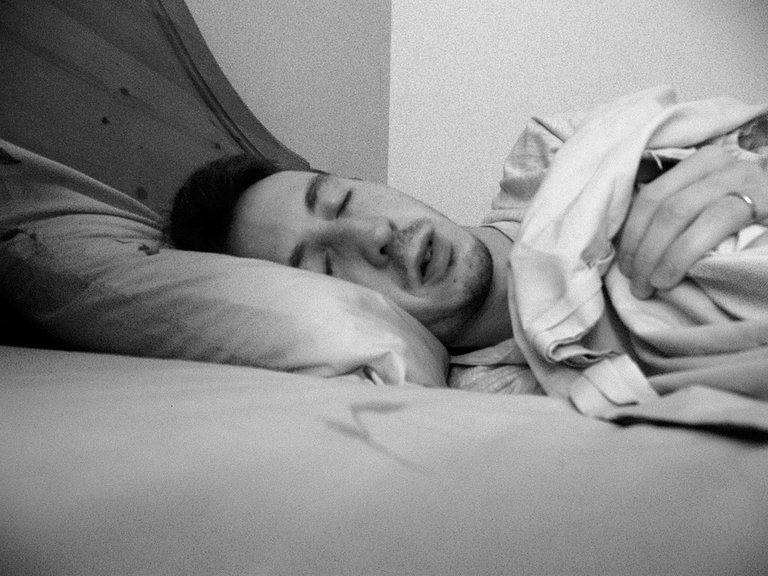Marijuana and Sleep: The Complex Relationship Between Cannabis and Slumber
The terminology surrounding cannabis, whether it's called marijuana, weed, or cannabis, is as diverse as its uses. In recent times, it has become increasingly prevalent in various forms, from edibles to smokable products. While many people use cannabis for recreational purposes, one crucial aspect that warrants discussion is its impact on sleep.
Some people have claimed that they use cannabis to make them sleep, while others say that it makes their sleeping worse. So in this post, I will be looking at what happens to the body when we go to bed after taking cannabis and feeling high, are we hurting our sleep, affecting our energy level, and disturbing our mental capacity?
To start, we can't dismiss the fact that THC, a key compound in cannabis, has shown promise in reducing the time it takes to fall asleep. Individuals with THC in their system are more likely to experience a shorter sleep onset latency, which can be particularly beneficial for those dealing with insomnia or racing thoughts that hinder falling asleep. Research has indicated that marijuana can help people suffering from insomnia not only fall asleep more quickly but also enjoy longer, more restful sleep, ultimately enhancing their daily functioning and overall well-being.
While cannabis has this goods, it is important to know that repeated use of cannabis can lead to problems. Also CBD, the non psychoactive content of Cannabis interacts with the body to decrease sleep temperature which prevents sleep in people who use it. CBD also interacts with adenosine which is usually built up during the day in the day, and CBD can modulate the sensitivity to adenosine, leading to tiredness. CBD also affect the amygdala thereby reducing anxiety and causing a restful sleep.
Despite the potential for THC to expedite the process of falling asleep, it's worth noting that it may negatively impact the overall quality of sleep. THC can disrupt the normal sleep cycle, particularly by having a detrimental effect on REM (rapid eye movement) sleep. It tends to delay the onset of the first REM sleep phase and reduce the total duration of REM sleep. These disturbances can impair cognitive functions, potentially contributing to memory problems and even Alzheimer's disease. In the short term, THC use may lead to side effects such as dizziness, anxiety, hallucinations, and paranoia.
People with insomnia that are suffering from cannabis withdrawal would agree to the fact that cannabis help them sleep better because they have to go through rebound which can be very troubling. With this, people who suffer from insomnia are left with though decisions to either quit smoking and face rebound insomnia or continue taking marijuana and have early sleep which is a worse quality sleep.
For some individuals, tolerance to THC may develop, prompting them to increase their dosage. Paradoxically, this escalation can lead to more severe sleep problems. With shorter sleep durations, less than the recommended 7 to 9 hours, often referred to as the 'Goldilocks zone', people are at a higher risk of developing heart conditions, including heart attacks, strokes, atherosclerosis, diabetes, and coronary artery diseases. Research in this area remains somewhat inconclusive, as it's challenging to distinguish whether cannabis contributes to these problems or whether people with insomnia are more likely to turn to cannabis for potential relief.
While a single dose of THC or cannabis may initially assist with falling asleep, the habitual and increased use of these substances can ultimately hinder sleep quality and the overall sleep cycle, particularly impacting REM sleep, cognitive functioning, and heart health. Understanding the complex relationship between cannabis and sleep is an ongoing challenge that requires further research.
https://rapm.bmj.com/content/early/2021/11/24/rapm-2021-103161
https://www.ncbi.nlm.nih.gov/pmc/articles/PMC9067069/
https://www.ncbi.nlm.nih.gov/pmc/articles/PMC5895650/pdf/fphar-09-00315.pdf
https://pubmed.ncbi.nlm.nih.gov/28349316/
https://www.tandfonline.com/doi/full/10.1080/14737175.2022.2161894
https://www.sciencedirect.com/science/article/abs/pii/S0165178123000495
https://www.ncbi.nlm.nih.gov/pmc/articles/PMC2442418/
https://onlinelibrary.wiley.com/doi/full/10.1111/jsr.13793
https://www.ncbi.nlm.nih.gov/pmc/articles/PMC7388834/
https://www.tandfonline.com/doi/abs/10.1080/10550887.2015.1132986?journalCode=wjad20&
https://www.ncbi.nlm.nih.gov/pmc/articles/PMC7246936/
https://www.ncbi.nlm.nih.gov/pmc/articles/PMC6781714/


!LOL
Posted using WeedCash Network
lolztoken.com
I said “You can't hurry love, you'll just have to wait...”
Credit: reddit
@thomisin, I sent you an $LOLZ on behalf of holovision.hypno
(2/8)
NEW: Join LOLZ's Daily Earn and Burn Contest and win $LOLZ
Thanks for your contribution to the STEMsocial community. Feel free to join us on discord to get to know the rest of us!
Please consider delegating to the @stemsocial account (85% of the curation rewards are returned).
Thanks for including @stemsocial as a beneficiary, which gives you stronger support.
Congratulations @thomisin! You have completed the following achievement on the Hive blockchain And have been rewarded with New badge(s)
Your next target is to reach 15000 upvotes.
You can view your badges on your board and compare yourself to others in the Ranking
If you no longer want to receive notifications, reply to this comment with the word
STOPCheck out our last posts: